10 Reasons to Support Inclusive School Communities for ALL Students
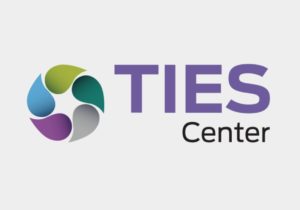
This helpful article from the TIES Center provides incredibly useful information for anyone wanting to know why inclusion is so important. Read it and share it with friends!
Students with disabilities are entitled to certain protections/supports under 2 federal laws; the Individuals with Disabilities Education Improvement Act (IDEA), 2004 and Section 504 of the Rehabilitation Act. Below are links to various state agencies and organizations that provide in-depth information about special education law/regulations and specialized services available in Arkansas.

This helpful article from the TIES Center provides incredibly useful information for anyone wanting to know why inclusion is so important. Read it and share it with friends!
 The Culinary Arts and Hospitality Management Institute at UA – Pulaski Tech admits a new cohort of students each fall who challenge others to think differently about disabilities, much like a 3D film highlights new dimensions, by offering post-secondary education and job preparation for adults with developmental or intellectual differences. 3D Students learn about professionalism in the industry through rigorous hands-on training before connecting with a supported internship in the fields of Culinary, Baking, and Hospitality.
The Culinary Arts and Hospitality Management Institute at UA – Pulaski Tech admits a new cohort of students each fall who challenge others to think differently about disabilities, much like a 3D film highlights new dimensions, by offering post-secondary education and job preparation for adults with developmental or intellectual differences. 3D Students learn about professionalism in the industry through rigorous hands-on training before connecting with a supported internship in the fields of Culinary, Baking, and Hospitality.
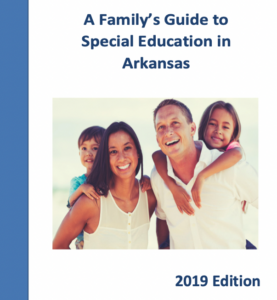 Download this resource from the Arkansas Department of Education
Download this resource from the Arkansas Department of Education
The Individuals with Disabilities Education Act (IDEA) is a federal law that guarantees that children with disabilities receive a free appropriate public education alongside their non-disabled peers.
Academics, Community, Career Development and Employment Program (ACCE)
Postsecondary Education & Training
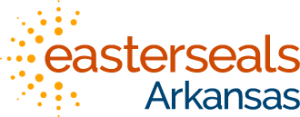
Easterseals Arkansas and the University of Arkansas at Little Rock have an exciting new program for students with intellectual and developmental disabilities in central Arkansas.
The Academics, Community, Career Development and Employment Program (ACCE) is an opportunity for students to have a college experience and prepare for competitive employment. Academics, social support, work exploration, and job placement are all components of the program.
ACCE is a two-semester program on the UA Little Rock campus. For additional information, or to apply, please contact Easterseals Arkansas at 501-227-3600 or info@eastersealsar.com.

The Advocate Medical Group is a primary and specialty healthcare clinic that has served the medical and psychosocial needs of over 6,000 teens and adults with Down syndrome since 1992. As a comprehensive medical resource we provide patients everything from holistic care and support to education and resources in a compassionate, welcoming environment. We also hold events, participate in community outreach and conduct research.
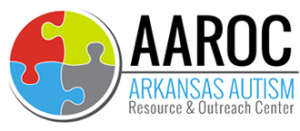 The Arkansas Autism Resource & Outreach Center (AAROC) was established January 2008 as a non-profit 501(c)3 organization. The mission of the AAROC is to provide Hope, Direction & Support to families of individuals diagnosed with an autism spectrum disorder.
The Arkansas Autism Resource & Outreach Center (AAROC) was established January 2008 as a non-profit 501(c)3 organization. The mission of the AAROC is to provide Hope, Direction & Support to families of individuals diagnosed with an autism spectrum disorder.
This article from the American University School of Education provides lots of helpful, practical information for educators to improve the accessibility of their classrooms.
 Ashley Barlow is an advocate who helps parents with IEPs and provides many resources. From Ashely Barlow’s homepage:
Ashley Barlow is an advocate who helps parents with IEPs and provides many resources. From Ashely Barlow’s homepage:
I’m here to empower parents and educators to become advocates and teachers, through collaboration, education, and support.
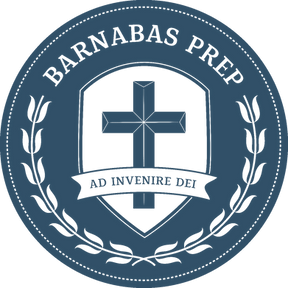 From the Barnabas Prep website: “At Barnabas Prep, we’re a collegiate program, but we’re also a partnership. We’re committed to helping your student become the very best version of themselves away from home.
From the Barnabas Prep website: “At Barnabas Prep, we’re a collegiate program, but we’re also a partnership. We’re committed to helping your student become the very best version of themselves away from home.
Our Christ-centered program based in Branson, Missouri is uniquely designed to equip young adults with disabilities to achieve high levels of independence.”
Bridging the gap between technology and people with disabilities.
BridgingApps is a program of Easter Seals Greater Houston that provides access to educational and therapeutic tools—anywhere, anytime—allowing parents, teachers, and therapists to effectively use mobile devices and apps to target and improve individual skill development to help children and adults with disabilities reach their highest levels of physical and cognitive development.

CIR/CUIT – Centralized Intake and Referral / Consultant Unified Intervention Team
CIR/CUIT is a group of special education consultants available to assist in interventions for students with sensory disabilities, multiple physical disabilities, behavior, and autism spectrum disorders. Services can be requested by parents, guardians, caregivers, school personnel, or any other concerned party.
 Council for Exceptional Children: professional association of educators dedicated to advancing the success of children with exceptionalities.
Council for Exceptional Children: professional association of educators dedicated to advancing the success of children with exceptionalities.
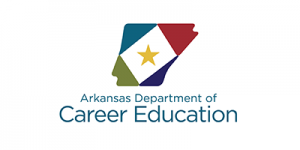 ARS provides services including career and technical education and training, transition from school to work or postsecondary education, on-the-job training, and ancillary support services that clients may need for successful employment.
ARS provides services including career and technical education and training, transition from school to work or postsecondary education, on-the-job training, and ancillary support services that clients may need for successful employment.
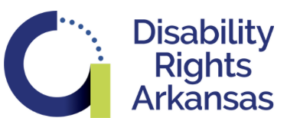 “Our Mission is to vigorously advocate for and enforce the legal rights of people with disabilities.
“Our Mission is to vigorously advocate for and enforce the legal rights of people with disabilities.
We Envision an Arkansas where people with disabilities are equal members in their communities and can dictate the course of their own lives through self-determination.”
https://disabilityrightsar.org/
This enlightening slideshow contains lots of great information about Down Syndrome. This is a great resource to share with loved ones. Download as either a PDF or PPT below.
Click the link below to listen to a podcast series from the Down Syndrome Center of Western Pennsylvania at Children’s Hospital of Pittsburgh of UPMC.
“We support scientific research and deliver evidence-based advice and information to improve educational outcomes for children with Down syndrome.
We work in partnership with Down Syndrome Education International. Together, our research, resources and services help people with Down syndrome in over 170 countries achieve more and live more independent and fulfilling lives.
You can find out more about our research, resources and services on the main DSE web site”
This enlightening slideshow contains tons of great information about Down Syndrome. This is a great resource to share with loved ones.
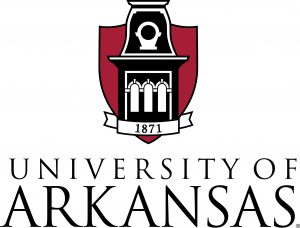 EMPOWER offers a four-year, non-degree college experience program for students with cognitive disabilities that incorporates functional academics, independent living, employment, social/leisure skills, and health/wellness skills in a public university setting with the goal of producing self-sufficient young adults. The University of Arkansas program is offered for students who demonstrate the ability to safely live independently, sustain employment, and socially integrate during their enrollment. The program progresses with an emphasis on workplace experience, community integration, and independent living with transitionally reduced supports. Students who successfully complete the program will receive a certificate of program completion.
EMPOWER offers a four-year, non-degree college experience program for students with cognitive disabilities that incorporates functional academics, independent living, employment, social/leisure skills, and health/wellness skills in a public university setting with the goal of producing self-sufficient young adults. The University of Arkansas program is offered for students who demonstrate the ability to safely live independently, sustain employment, and socially integrate during their enrollment. The program progresses with an emphasis on workplace experience, community integration, and independent living with transitionally reduced supports. Students who successfully complete the program will receive a certificate of program completion.
![]() Students with intellectual disabilities may be able to get certain types of federal student aid.
Students with intellectual disabilities may be able to get certain types of federal student aid.
If you have an intellectual disability, you may receive funding from the Federal Pell Grant, Federal Supplemental Educational Opportunity Grant, and Federal Work-Study programs. Find more information on studentaid.gov.
https://studentaid.gov/understand-aid/eligibility/requirements/intellectual-disabilities
The Low Tech Communication Board Library is a collection of downloadable communication boards (PDF files) as well as helpful links you can click on (📺-video; 💜-website; 🎵-song) to use with individuals with communication needs.
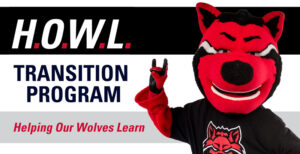
The H.O.W.L. Transition Program provides the A-State experience to students
 Handwriting without Tears uses multisensory, developmentally appropriate strategies to increase success with early writing skills.
Handwriting without Tears uses multisensory, developmentally appropriate strategies to increase success with early writing skills.
Read this helpful article from Understood.com at the link below
The Individuals with Disabilities Education Act (IDEA) is one of the most important laws affecting Americans with disabilities. Click below to read the full text of the law.

The Individuals with Disabilities Education Act (IDEA) is a law that makes available a free appropriate public education to eligible children with disabilities throughout the nation and ensures special education and related services to those children.

“The mission of Inclusion Works Foundation (Inclusion Works) is to promote Equity and Access to a Quality Inclusive Education for children of ALL ABILITIES.”
The Inclusion Works Foundation supports inclusive Classrooms, inclusive education, special education inclusion (definition) and the overall promotion of IDEA. Specifically, the promotion of Inclusion, Diversity & Educational Activism for parents, students, educators and community – in all settings. Inclusion means “Everyone Matters!”
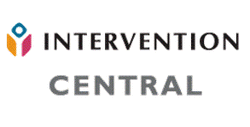 Intervention Central provides teachers, schools and districts with free resources to help struggling learners and implement Response to Intervention and attain the Common Core State Standards.
Intervention Central provides teachers, schools and districts with free resources to help struggling learners and implement Response to Intervention and attain the Common Core State Standards.
 Supported by the U.S. Department of Education’s Office of Special Education Programs and located at Vanderbilt University’s Peabody College, the IRIS Center develops and disseminates free, engaging online resources about evidence-based instructional and behavioral practices to support the education of all students, particularly struggling learners and those with disabilities. These resources, designed to bridge the research-to-practice gap, are intended for use in college teacher preparation programs, in professional development (PD) activities for practicing professionals, and by independent learners. The array of IRIS resources includes modules, case studies, information briefs, course/PD activities, a high-leverage practices alignment tool, and an online glossary of disability-related terms as well as supporting products to enhance their use in coursework and PD activities.
Supported by the U.S. Department of Education’s Office of Special Education Programs and located at Vanderbilt University’s Peabody College, the IRIS Center develops and disseminates free, engaging online resources about evidence-based instructional and behavioral practices to support the education of all students, particularly struggling learners and those with disabilities. These resources, designed to bridge the research-to-practice gap, are intended for use in college teacher preparation programs, in professional development (PD) activities for practicing professionals, and by independent learners. The array of IRIS resources includes modules, case studies, information briefs, course/PD activities, a high-leverage practices alignment tool, and an online glossary of disability-related terms as well as supporting products to enhance their use in coursework and PD activities.
 Life Styles enthusiastically supports individuals with disabilities in reaching their full potential as contributing members of the community. They are the organization behind the Launch program.
Life Styles enthusiastically supports individuals with disabilities in reaching their full potential as contributing members of the community. They are the organization behind the Launch program.
 Launch is a program for students between the ages of 18 and 25 who want a college experience. They are able to experience many social aspects of the University of Arkansas such as having class on campus, using the gym on campus, eating at the Union and Commons, having University Mentors and Internships. The classes that the students take are focused on continuing education (math, reading, writing, etc.) and independent living skills (budgeting, career exploration, social skills, healthy living, etc). It is not fully affiliated with the University of Arkansas; partnerships between departments exist. For additional information, please contact the Program Director.
Launch is a program for students between the ages of 18 and 25 who want a college experience. They are able to experience many social aspects of the University of Arkansas such as having class on campus, using the gym on campus, eating at the Union and Commons, having University Mentors and Internships. The classes that the students take are focused on continuing education (math, reading, writing, etc.) and independent living skills (budgeting, career exploration, social skills, healthy living, etc). It is not fully affiliated with the University of Arkansas; partnerships between departments exist. For additional information, please contact the Program Director.
Launch program: https://thinkcollege.net/programs/launch
Life Styles: http://www.lifestylesinc.org/
 A free service provided by the Arkansas Department of Education, mediation brings together parents and educators to work with each other to resolve disagreements about a child’s special education needs. Special education mediation is voluntary and confidential.
A free service provided by the Arkansas Department of Education, mediation brings together parents and educators to work with each other to resolve disagreements about a child’s special education needs. Special education mediation is voluntary and confidential.
https://issuu.com/bowenlaw/docs/2012_specedmediationbrochure_issuu?mode=window
 Down Syndrome: Guidelines for Inclusive Education is the first document of its kind in the United States. The document addresses the education settings that support students with Down syndrome, covering the period from early intervention and primary education through secondary and through higher education, with the primary focus being K-12 students.
Down Syndrome: Guidelines for Inclusive Education is the first document of its kind in the United States. The document addresses the education settings that support students with Down syndrome, covering the period from early intervention and primary education through secondary and through higher education, with the primary focus being K-12 students.
The National Down Syndrome Society (NDSS) offers several scholarships. Find more information on their website.
The contact information for Arkansas OSEP representatives is below. Check the link below for the latest info.
| Arkansas | ||
|---|---|---|
| Customer Service: | Cheryl Broady | 202-245-7280 |
| Part B Contact: | Susan Murray | 202-245-8247 |
| Part C Contact: | Kimberly Mitchell | 202-245-7453 |
| Team Leader: | Al Jones | 202-245-7394 |
https://www2.ed.gov/policy/speced/guid/idea/monitor/state-contact-list.html#ar
 The mission of the Office of Special Education Programs (OSEP) is to lead the nation’s efforts to improve outcomes for children with disabilities, birth through 21, and their families, ensuring access to fair, equitable, and high-quality education and services. Our vision is for a world in which individuals with disabilities have unlimited opportunities to learn and to lead purposeful and fulfilling lives.
The mission of the Office of Special Education Programs (OSEP) is to lead the nation’s efforts to improve outcomes for children with disabilities, birth through 21, and their families, ensuring access to fair, equitable, and high-quality education and services. Our vision is for a world in which individuals with disabilities have unlimited opportunities to learn and to lead purposeful and fulfilling lives.
OSEP administers the Individuals with Disabilities Education Act (IDEA) which authorizes formula grants to states under Part B, grants to lead agencies for the infants and families program under Part C, and discretionary grants under Part D to institutions of higher education and other non-profit organizations to support grants for state personnel development, technical assistance and dissemination, technology, personnel development, and parent-training and information centers.
https://www2.ed.gov/about/offices/list/osers/osep/about.html
 PACER Center enhances the quality of life and expands opportunities for children, youth, and young adults with all disabilities and their families so each person can reach his or her highest potential. PACER operates on the principles of parents helping parents, supporting families, promoting a safe environment for all children, and working in collaboration with others.
PACER Center enhances the quality of life and expands opportunities for children, youth, and young adults with all disabilities and their families so each person can reach his or her highest potential. PACER operates on the principles of parents helping parents, supporting families, promoting a safe environment for all children, and working in collaboration with others.
“Once a child with Down syndrome is born, parents frequently want to know how well their son or daughter is developing. Now we have guideposts …,”
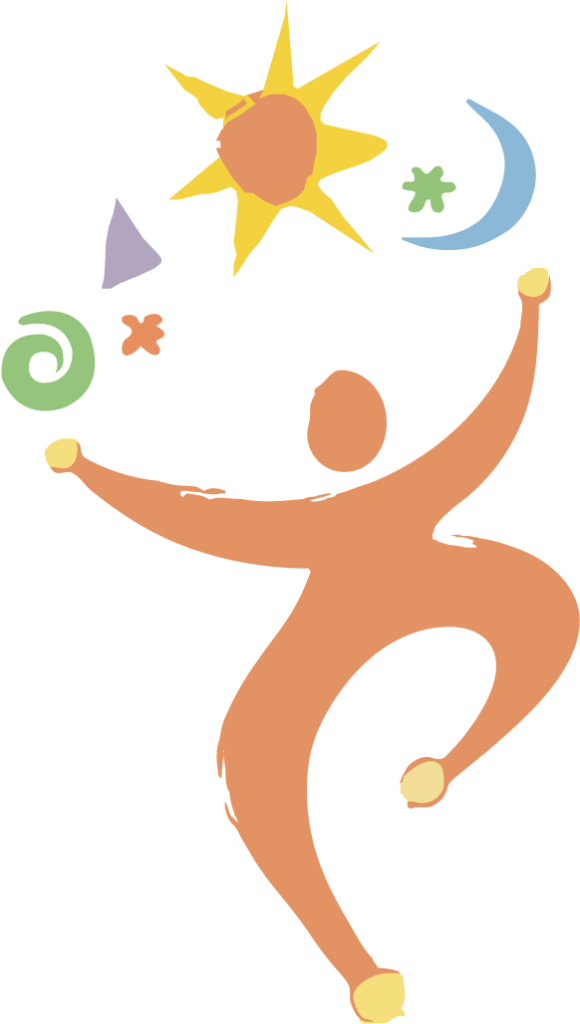
ACCESS Initiative is an innovative job-training program providing a nine-month internship program for young adults, with developmental disabilities. Interns in the program complete (3) ten-week rotations at a partnering business with the goal of gaining necessary skills to obtain competitive employment. Upon completion of the program, staff provide assistance with finding employment within the community and continued support during employment
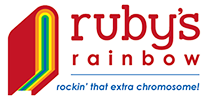 The goal and mission at Ruby’s Rainbow is to grant scholarships to adults with Down syndrome who are seeking post-secondary education, enrichment or vocational classes, helping them achieve their dreams of higher education while spreading awareness of their capabilities and general awesomeness.
The goal and mission at Ruby’s Rainbow is to grant scholarships to adults with Down syndrome who are seeking post-secondary education, enrichment or vocational classes, helping them achieve their dreams of higher education while spreading awareness of their capabilities and general awesomeness.
 This webpage hosts information regarding applications to support Special Education in the state of Arkansas.
This webpage hosts information regarding applications to support Special Education in the state of Arkansas.
 Click the link below to read this helpful article from pacer.org
Click the link below to read this helpful article from pacer.org
 Our Mission
Our Mission
“Welcome to The Inclusive Class Blog! My name is Nicole and I advocate for the inclusion of students with disabilities in the general education classroom.”
 The Transition Coalition is an organization run through the University of Kansas which aims to maximize professional development opportunities for career and college readiness for youth with disabilities.
The Transition Coalition is an organization run through the University of Kansas which aims to maximize professional development opportunities for career and college readiness for youth with disabilities.
 Think College is a resource that helps people with disabilities navigate options for higher education.
Think College is a resource that helps people with disabilities navigate options for higher education.
“As high school graduation draws near, students with disabilities encounter a spectrum of options for their transition into the working world.”
https://www.accreditedschoolsonline.org/vocational-trade-school/people-with-disabilities/
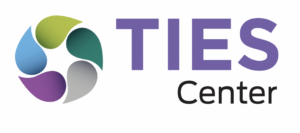 TIES Center is the national technical assistance center on inclusive practices and policies. Its purpose is to create sustainable changes in kindergarten-grade 8 school and district educational systems so that students with significant cognitive disabilities can fully engage in the same instructional and non-instructional activities as their general education peers while being instructed in a way that meets individual learning needs.
TIES Center is the national technical assistance center on inclusive practices and policies. Its purpose is to create sustainable changes in kindergarten-grade 8 school and district educational systems so that students with significant cognitive disabilities can fully engage in the same instructional and non-instructional activities as their general education peers while being instructed in a way that meets individual learning needs. 
Arkansas Down Syndrome Association promotes and enhances the overall health and well-being of people with Down syndrome and their families.
Learn more about ADSA >